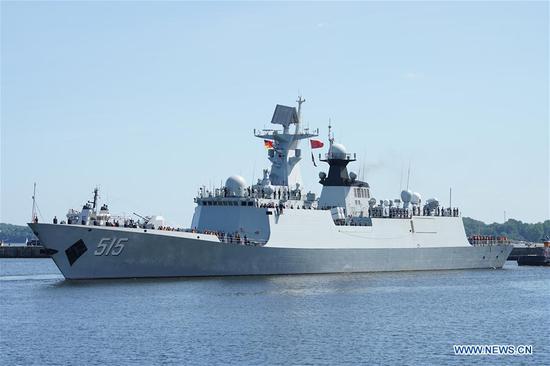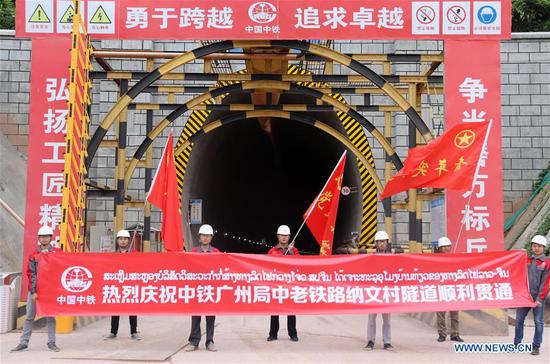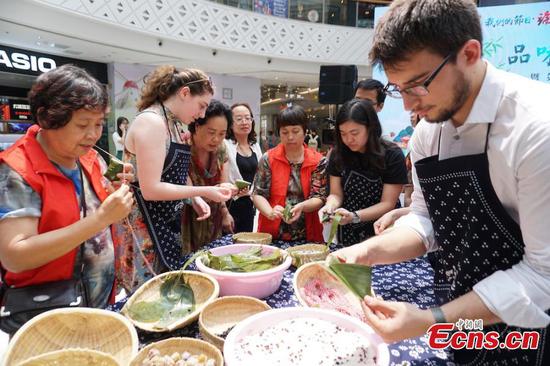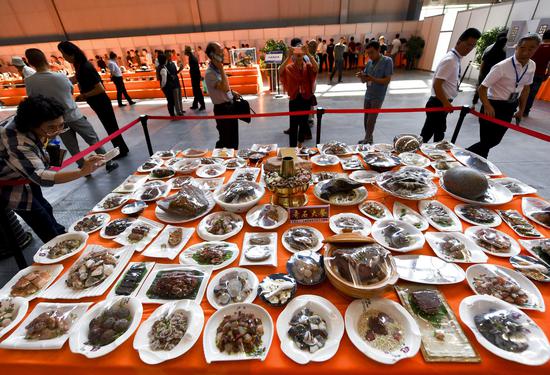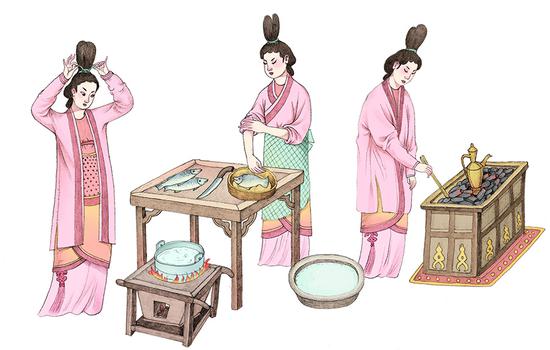Fresh U.S. tariffs on imports from China reflect the Trump administration's vested political interests and its indifference to the demands of U.S. farming community, companies and consumers, trade experts and business leaders said on Monday.
Their comments came after the U.S. administration of threatened on Monday (local time) to impose a 10 percent tariff on $200 billion of Chinese goods, in retaliation for China's decision to raise tariffs on $50 billion in U.S. goods. Trump said in a statement he had asked the U.S. trade representative to identify the Chinese products to be subject to the new tariffs and he threatened that if China increases tariffs again, the U.S. will meet the action by pursuing additional tariff on another $200 billion of Chinese goods.
The U.S. announced to impose 25 percent tariffs on $50 billion worth of imports from China on June 15. Following that announcement, China said it will protect its own interests and levy tariffs on about $50 billion worth of U.S. imports based on the "equal scale and strength" principle, mainly targeting soybean, aquatic and automobile products.
Li Daokui, an economist at Tsinghua University and former Chinese central bank monetary policy committee member, said: "U.S. policymakers aren't being responsible toward American people, but appear to be keen on pleasing a few vested interests and voters for short-term gains."
U.S. economic problems go far beyond its trade deficit. The Trump administration needs to be farsighted and address some of its fundamental issues in the long run.
China-U.S. negotiations will be a long and bumpy road as some U.S. politicians appear keen to keep bilateral trade relations friction-ridden, according to Li.
"Trade friction is what many U.S. politicians crave. They are doing so to win more voters. If the Trump administration reach any deal with China, the opposition party would punch holes in any such agreement and blame the incumbent for failing to come up with a better decision and interpret the deal as a compromise with China," Li said.
Agreed Fu Zhenzhen, an analyst with CnAgri, a Beijing-based agricultural consultancy. "What the Trump's administration has done appears to be totally driven by political purposes. Because unlike in April, when there was time and space for change, this time the situation is markedly different.
"For, the U.S. farmers have already planted the soybean crop, which includes 30 million metric tons of soybean that are planned to be exported to China. If the U.S. government can't solve the issue by September when the crop would be ready for the harvest, there will be a huge problem for the U.S. soybean industry."
Fu further said if the U.S. farmers are deprived of access to the Chinese market, they will likely face immense trouble in finding alternative markets for the 30 million tons of soybean at short notice.
Brian Kuehl, executive director of Farmers for Free Trade, expressed similar sentiments in a statement on Friday. For American farmers, export woes are not just a possibility but a downright scary prospect, he said.
The new U.S. tariffs are no longer a trade negotiation tactic but a heartless tax on the livelihoods of U.S. farmers, Kuehl said.
"Within days, soybean, corn, wheat and other commodity farmers in the U.S. are likely to be hit with retaliatory tariffs of up to 25 percent on exports. It's exports that keep their operations afloat. When they (retaliatory tariffs) hit them, they're not going to remain silent.
"The imposition of these tariffs is not only a blow to our farmers, it's a win for our competitors," Kuehl said. "When American soybean and corn become more expensive, South America wins. When beef becomes more expensive, Australia wins. As this trade war drags on, (U.S.) farmers will rightly question why our competitors are winning while we're losing."
For American farmers, agricultural exports to China are worth almost $20 billion annually. Soybean exports alone account for about $14 billion, according to the U.S. Department of Agriculture.
A set of retaliatory tariffs released by China on Friday includes a plan to tax American lobster exports. If the lobster tax comes to pass, it could potentially hurt one of the biggest markets for the premium seafood.
The planned tax could have major ramifications for the U.S. seafood industry and for the economy of the state of Maine, which is home to most of the country's lobster business segment.
China's interest in U.S. lobsters has grown exponentially in recent years, and exports to China have become a major focus of the business segment.
"Hopefully, better sense will prevail and we'll find a sensible solution," said Matt Jacobson, executive director of the Maine Lobster Marketing Collaborative. "China is a year-round customer. This (news about planned tariffs) isn't good news at all."
China imported $837 million of aquatic products from the U.S. in 2017, up 21.28 percent year-on-year, data from the China Society of Fisheries showed.
U.S. automakers, for whom China is a key growth market, are also likely to be hit by bruising tariffs.
U.S. auto giant Ford Motor Co sold 338,386 vehicles in China in the first five months this year, about one-third the number in the U.S.. It had welcomed a Chinese plan to lower tariffs on auto imports. It had even planned to cut prices of its imported Lincoln brand of vehicles.
That may be in jeopardy now as gas-powered and electric vehicles are due to be slapped with a higher border tax.
Wei Jianguo, former vice-minister of commerce, said this move, once taking effect, will further push the U.S. automobile manufacturers out of the Chinese market, as vehicles from Germany, Sweden, France and Japan have already taken the majority proportion of the country's medium and high-end vehicle market.
Moreover, Wei said higher tariff on U.S. auto products will also leave more space for domestic car makers to upgrade their product lines by setting up joint ventures, facilitating research activities and acquisitions with European or Japanese companies.
Earlier this year, China vowed to further open up the auto market by lowering tariffs on high-end automobiles and through expanding market access.
But U.S. auto makers may miss the golden chance to expand their footprints in China, if the Trump administration sticks to trade protectionism and keeps destroying free trade, said Wei.


















